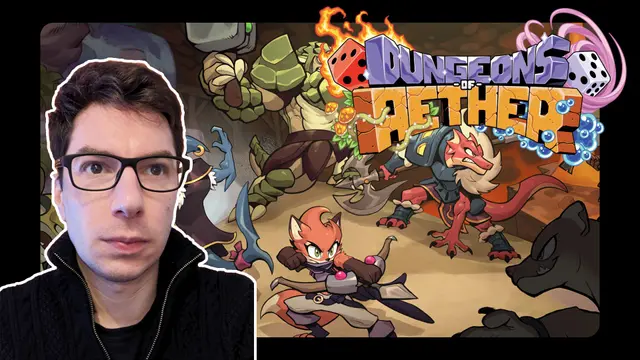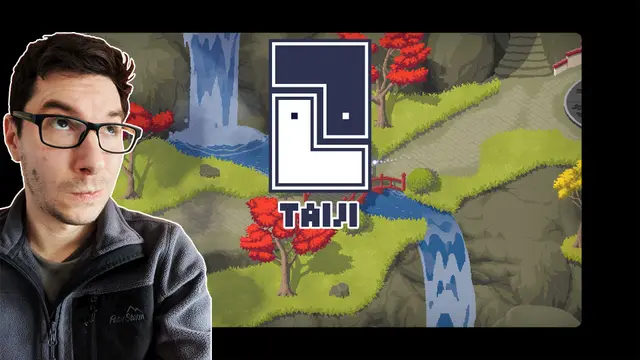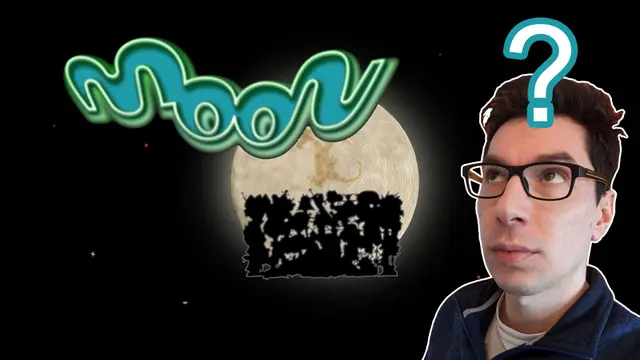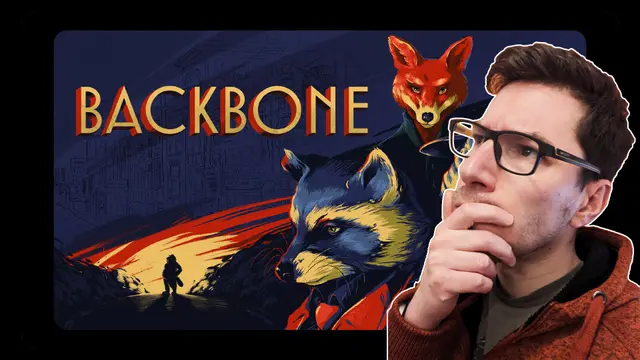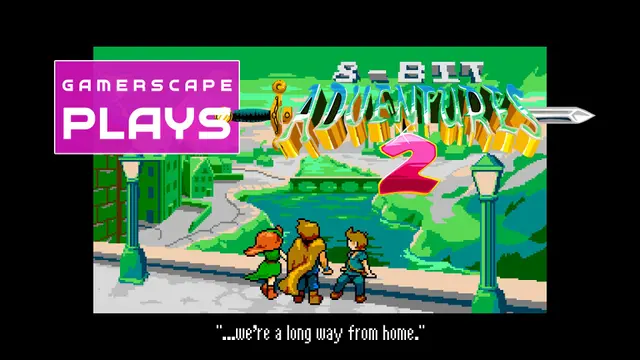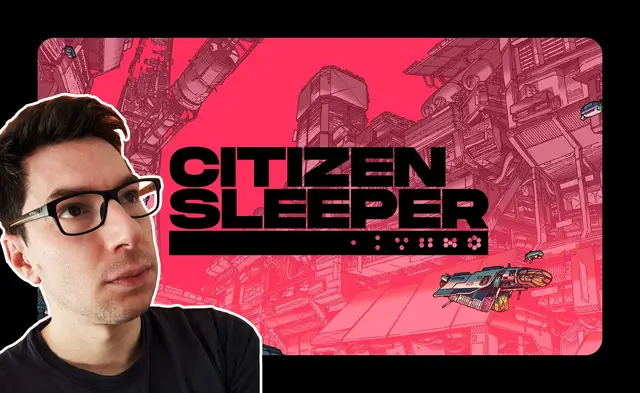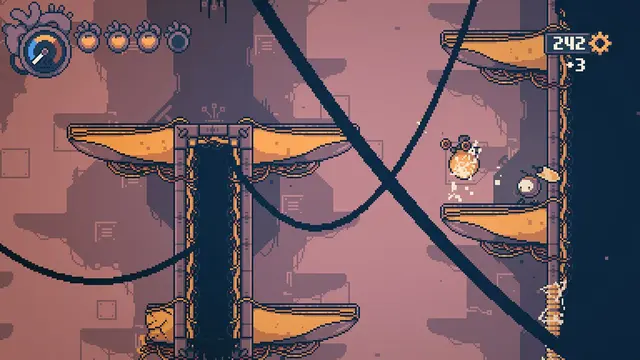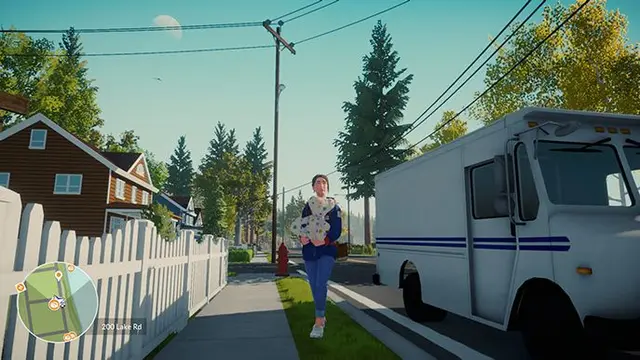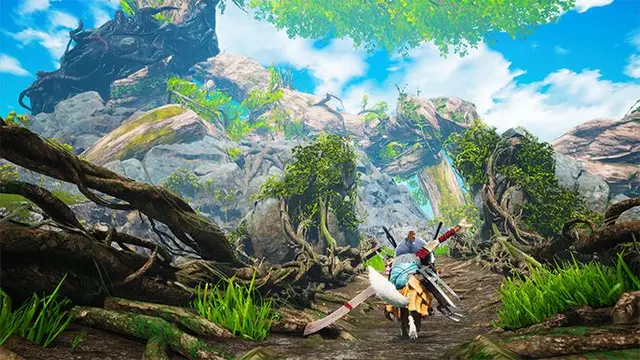ReviewSigns of the Sojourner
A clear game of the year contender, Signs of the Sojourner's brilliant cast, deep yet accessible card game mechanics, and emotional gut-punches will stay with you a long time after you finish your journey.
Posted by Nate on 29 June 2020 at 1:58PM
Signs of the Sojourner is quite unlike any game I've played before. Part visual novel, part card game, and part choose-your-own-adventure, it immerses you almost immediately with colourful locations, intriguing characters and difficult scenarios. Its main card game mechanic is such an effective representation for the themes you encounter as you spend you time travelling from town to town trying to keep your shop afloat.
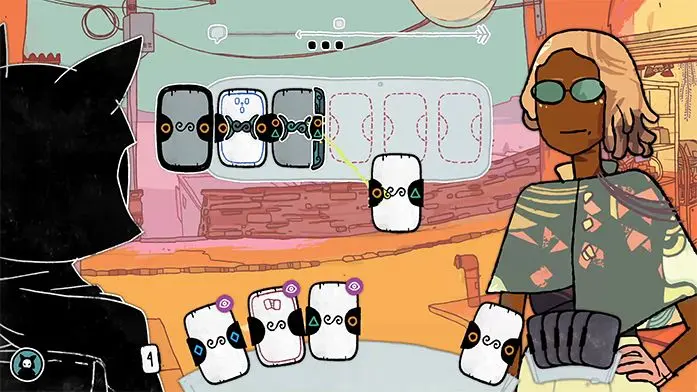
Your late mother's shop has been passed to you and together with your best friend Elias, you need to work on acquiring stock. The caravan route passes through your home town of Bartow, a group that your mother often travelled with. Inexperienced and untravelled, you join Nadine and the rest of the caravaneers on their journey to start making positive business connections and acquire items to stock. Bartow is not doing so well and they are considering excluding the town from their route; an action that would severely affect all commerce in town.
You've known Elias since a young age. In fact, the tutorial is an argument you two had as children. He loyally tends to your store while you travel. Along your travels you meet many people from a surprisingly last cast of characters and they are all interesting. I was caught off-guard for how quickly I felt invested in them. Your interactions are limited in the sense that you usually only converse with someone once per trip so it feels critical to complete the conversation. Sometimes it's just not possible and you have no option but to fail, which can be frustrating but it's okay, you just have to move on.
The card game that makes up the conversation is both surprisingly deep and a really effective metaphor. In Bartow, Elias uses a deck with two different symbols. The circle represents empathetic and observant and the triangle represents logical and diplomatic. Your own deck also has a combination of these two symbols. The way you succeed in a conversation is to complete the row from left to right where the symbol on the left side of the card matches the symbol on the right of the card before it.
Sounds simple enough and it is. At least, in the beginning. It's only simple here because you know Elias so well and you find it easy to speak with him. However, as you encounter more people and widen your travels you find different symbols and it becomes considerably harder to complete a conversation – encountering a character that plays solely in diamonds and squares for instance. There are a few things you pick up along the way though. No matter the result of your conversation, you have to choose a card to take the place of one from your deck. Your deck is only ever ten cards so you have to be careful about its contents.
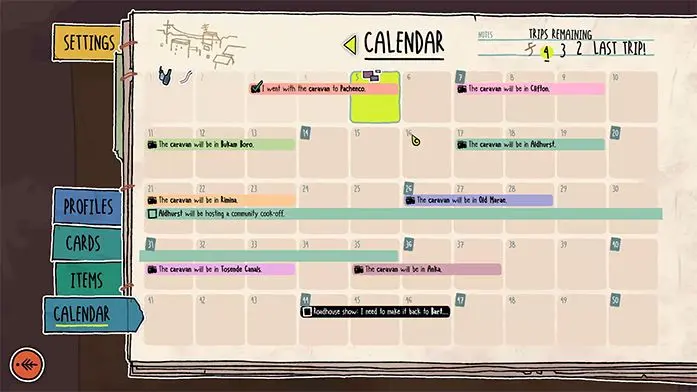
Of course, the cards you gain along your travels with new symbols take the place of others meaning it's difficult to succeed in a conversation closer to home, or even with Elias. The cards are a great metaphor for growing apart from people, not being able to relate to new people, and not being able to appease everyone. That's the entire point of your journeys; to meet new people, build new relationships in order to keep your mother's legacy alive, provide for yourself and keep Bartow's ties with the surrounding towns. It felt like a gut-punch when I returned to Bartow and wasn't able to complete a conversation with Elias – likely the only person I could actually trust.
There are a few things to help along the way. There are different powers that come with certain cards. These give a certain effect when played. For example 'Chatter' allows you to play another card immediately and 'Prepare' lets you choose which card from your deck you will draw next. These are absolutely the difference between success or failure and have saved me more times that I can remember. There is a sole technique that you can achieve during a conversation; an accord. This essentially works as a shield. They are achieved by placing four of the same symbol in a row and will allow the next card to have a symbol that doesn't match. To make things more complex, you gain fatigue cards the further into your travels you go. These are additional cards that cannot be matched with anything – previous or next and almost always result in failure. The further you get into a month the more you can expect to fail a conversation. At one of the most important conversations in my play through I drew five fatigue cards. However, I ultimately got a positive ending which felt tremendously rewarding after the amount of effort and thought I put into the game.
When I first started Signs of the Sojourner I had hoped that the card game mechanics would get more complex. I felt that connecting a maximum of six cards together couldn't have that much complexity and hoped for longer conversation. I could not have misunderstood more as while that number stays the maximum throughout the game the combination of the card powers, your deck building, the different symbols and the accord can make some really quite complex and surprising ways to succeed. Indeed, it feels like you can snatch victory from the jaws of defeat, although the opposite is very much true as well.
The game never explicitly directs you in how you should be playing or the decisions you should make. It took me until late on in the second trip to realise that I could deviate from the caravan and travel on my own to wherever I wanted. There are events in neighbouring towns that the caravaneers would miss but you could time your route to coincide at the cost of Nadine opinion of you. Successful conversations (and sometimes unsuccessful ones) teach you a new location, route, information or give you an item. After all, your main aim is to collect items to take back to stock your shop with.
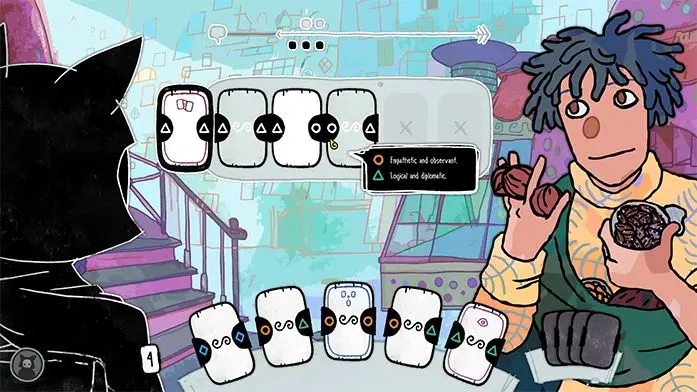
The game's presentation is wonderful as well. The bright colours bring the towns and characters to life. The soundtrack is sublime and help make each location you visit distinctive and memorable. The writing too is particularly strong and gives you space to make your own opinion of the people you meet and whether you'll comply with their wishes or even want to be associated with them at all. It's not a case of good or bad people. People are multi-layered and if you take the time and are successful in your conversations you gain context on why they did some of their more questionable activities.
You come across so many people's problems along your travels as well as managing your own. It's difficult to accept that you won't be able to help everyone. After all, countless games have conditioned the player to be able to help everyone with everything the majority of the time. There are exceptions of course but just think of a big RPG where you can get closure on dozens of issues and quests – good or bad – for every NPC query. Signs of the Sojourner doesn't force you to help this person or that person. At least, not in such obvious ways. Think about Telltale games where it literally presents the player with 'press X to save this character or B to save that character' and how ultimately meaningless that is. No, in this game you are taught to be compassionate and the progression is fluid. Of course you don't have to be compassionate. It's entirely up to you. It leaves the decisions to the player and for them to forge their own experience in these troubled lands.
I was really surprised by the considerable depth and just how compelled I felt to be the best person I could be in Signs of the Sojourner. I was empathetic towards many character's problems and felt genuine guilt and frustration when a conversation collapsed. There are characters I never had a successful conversation with, someone died without any closure to their narrative, and I can't forget my remorse at how I treated Elias even though I couldn't prevent it with the deck I had at the time. What I find really quite exciting is that another player could have a completely different experience to my own. Don't hesitate, go and forge your own story. Signs of the Sojourner has been my favourite game I've played this year.
The good
- The card game mechanics are surprisingly deep and enjoyable
- Fantastic cast of characters
- Wonderful art and music bring the towns to life
- Emotive storytelling
- The game gives the player freedom to make their own descisions



